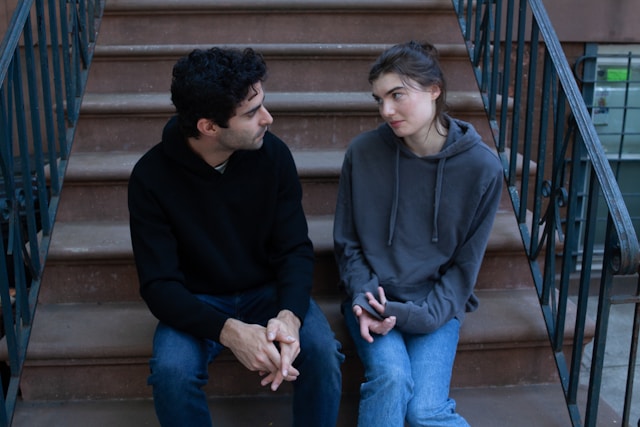“I’m sorry” should never come with qualifiers, but some people’s apologies often do.

Making amends when you’ve messed up is something any decent person would do, but half-hearted sorries are the norm for people who don’t want to deal with drama but also refuse to take responsibility for their behaviour. Here are some apologies that imply anything but remorse.
1. “I’m sorry you feel that way.”

This can be translated as, “I get that you’re mad, but that’s not my fault — that’s on you.” It completely avoids owning up to what the speaker did in the first place to upset the other person, and that’s not cool.
2. “I’m sorry, but you…”

Any apology followed by “but” is often an attempt to justify or excuse the behaviour. It completely diminishes the sincerity of the apology by immediately shrugging off blame and attempting a counterargument. Nice try!
3. “I’m sorry if I offended you.”

The use of “if” in this apology casts doubt on whether any offence actually occurred. It implies that the other person’s reaction might be an overreaction, rather than acknowledging that the speaker actually screwed up.
4. “I’m sorry you misunderstood me.”

Way to blame the other person for misinterpreting, rather than the speaker admitting that their communication skills need work. It avoids taking responsibility for unclear or hurtful words by suggesting that the problem lies in the other person’s comprehension, not in what was actually said.
5. “I’m sorry for whatever I did.”

How can someone genuinely apologise for something when they’re unaware of what the problematic actions actually were? It’s basically saying that they’re over the unrest and just want to brush things under the carpet.
6. “I’m sorry, I was just joking.”

Using humour as a defence is a blatant attempt to downplay their hurtful behaviour or words. In a sense, it invalidates the other person’s feelings by claiming that they just don’t get the “joke.” If no one’s laughing, it’s not funny!
7. “I’m sorry you took it that way.”

Similar to “I’m sorry you feel that way,” this is yet another way to shift the blame to the other person’s interpretation. It implies that their reaction is the problem, not the speaker’s words or actions.
8. “I’ve already said I’m sorry, what more do you want?”

It’s great for someone to say they’re sorry when they’ve messed up, but pushing the other person to forgive them immediately when they haven’t even had time to process shows just how insincere the apology was in the first place. People don’t have to get over things on anyone else’s timescale!
9. “I’m sorry, but that’s just who I am.”

Using their personality as an excuse for hurtful behaviour avoids taking responsibility for personal growth and change. They’re basically saying that they know they’re a jerk, but they don’t plan on being any different in the future, so the other person should just get over it. Life doesn’t work that way, mate.
10. “I’m sorry you’re so sensitive.”

This is clearly a backhanded apology that criticises the other person’s emotional response. It deflects blame by suggesting that the problem lies in the other person’s sensitivity, not in the apologiser’s actions.
11. “I’m sorry, but everyone else is fine with it.”

Comparing one person’s reaction to anyone else’s is a way of invalidating their specific experience. They’re trying to normalise inappropriate behaviour by suggesting that if no one else is bothered, the person who is upset is overreacting. It fails to acknowledge that different people may be impacted differently by the same actions.
12. “I’m sorry you’re upset, but that wasn’t my intention.”

While intentions do matter, this apology prioritises the apologiser’s intent over the actual impact of their actions. It can come across as dismissive of the hurt caused, regardless of what was meant. A genuine apology would acknowledge both the fact that they didn’t mean any harm and the reality that they caused some anyway.
13. “I’m sorry, but I was having a bad day.”

Using external circumstances to excuse behaviour means they’re yet again avoiding taking full responsibility for their actions. While context can be important, this type of apology suggests that personal difficulties justify treating people badly. Sorry, but adults should be able to regulate their emotions and behaviours a bit better than that.
14. “I’m sorry you remembered it that way.”

This apology subtly gaslights the other person by questioning their memory or perception of what happened. It’s an attempt to convince the other person that they’ve got it wrong and that things didn’t go down the way they know they did.
15. “I’m sorry, but let’s just move on.”

Rushing to put an issue in the past without fully addressing it is a form of avoiding accountability. This apology demonstrates an unwillingness to engage in the sometimes uncomfortable process of working through conflict and making amends. It prioritises the apologiser’s desire to avoid discomfort over the need for an actual resolution.




